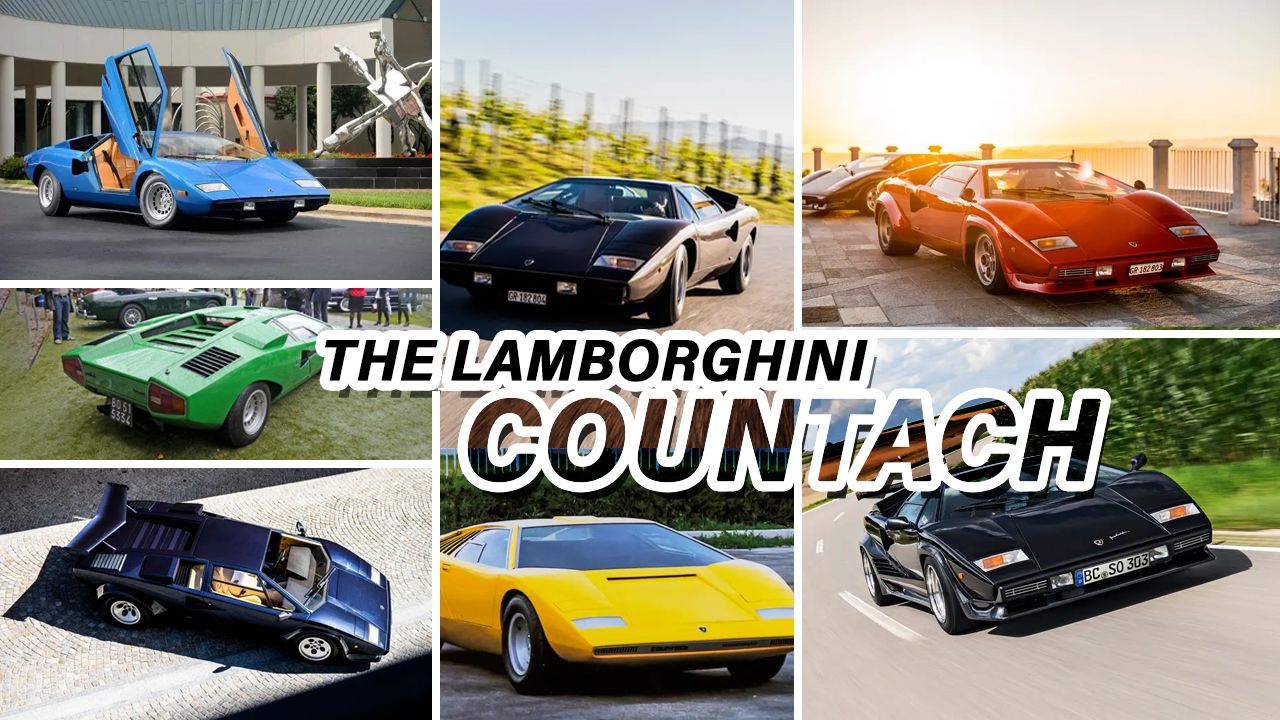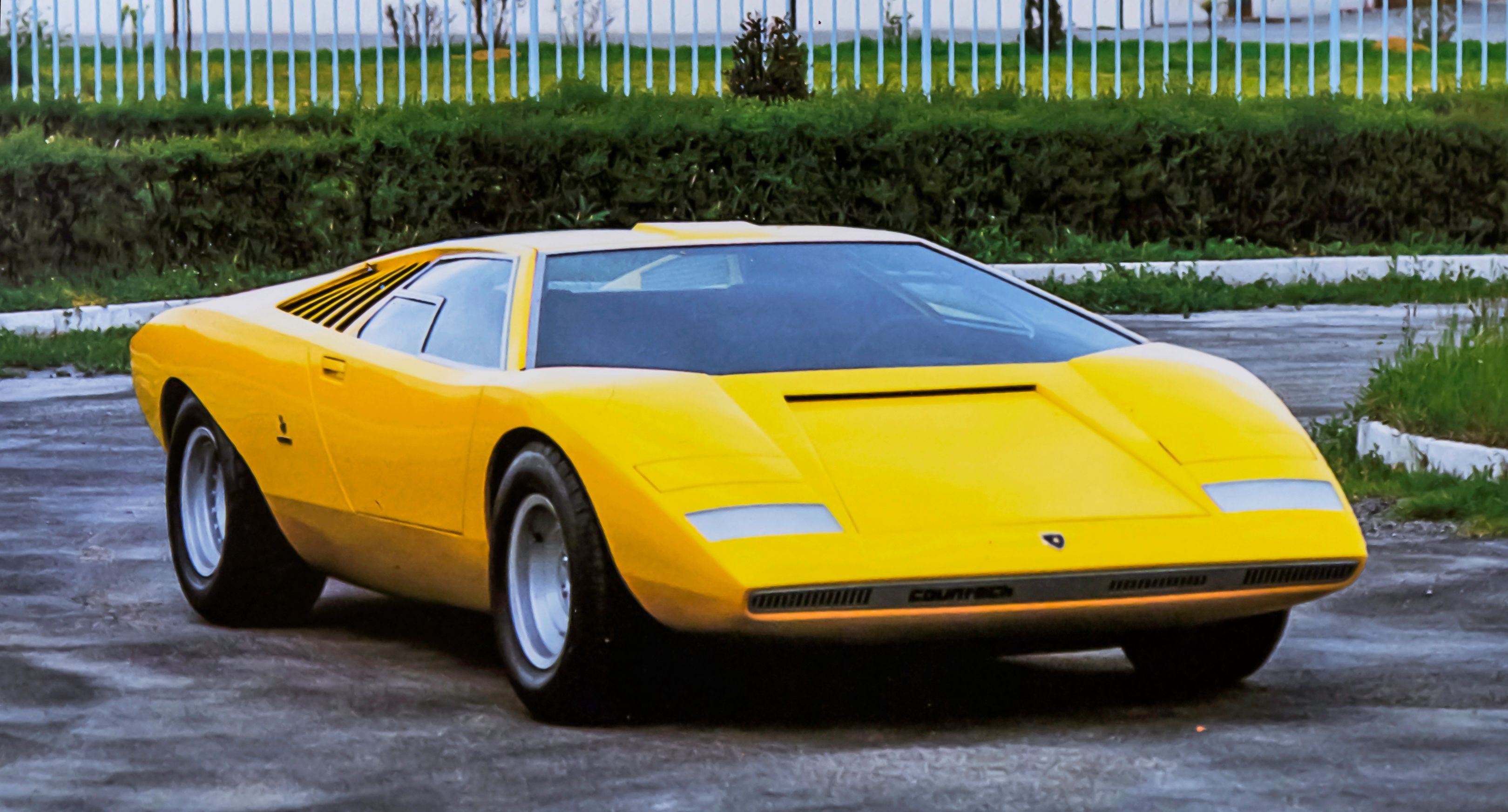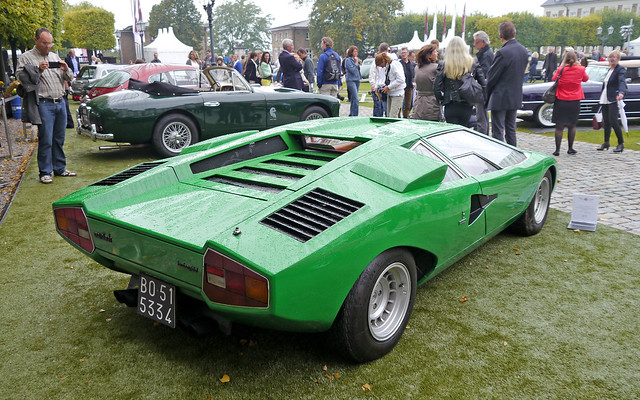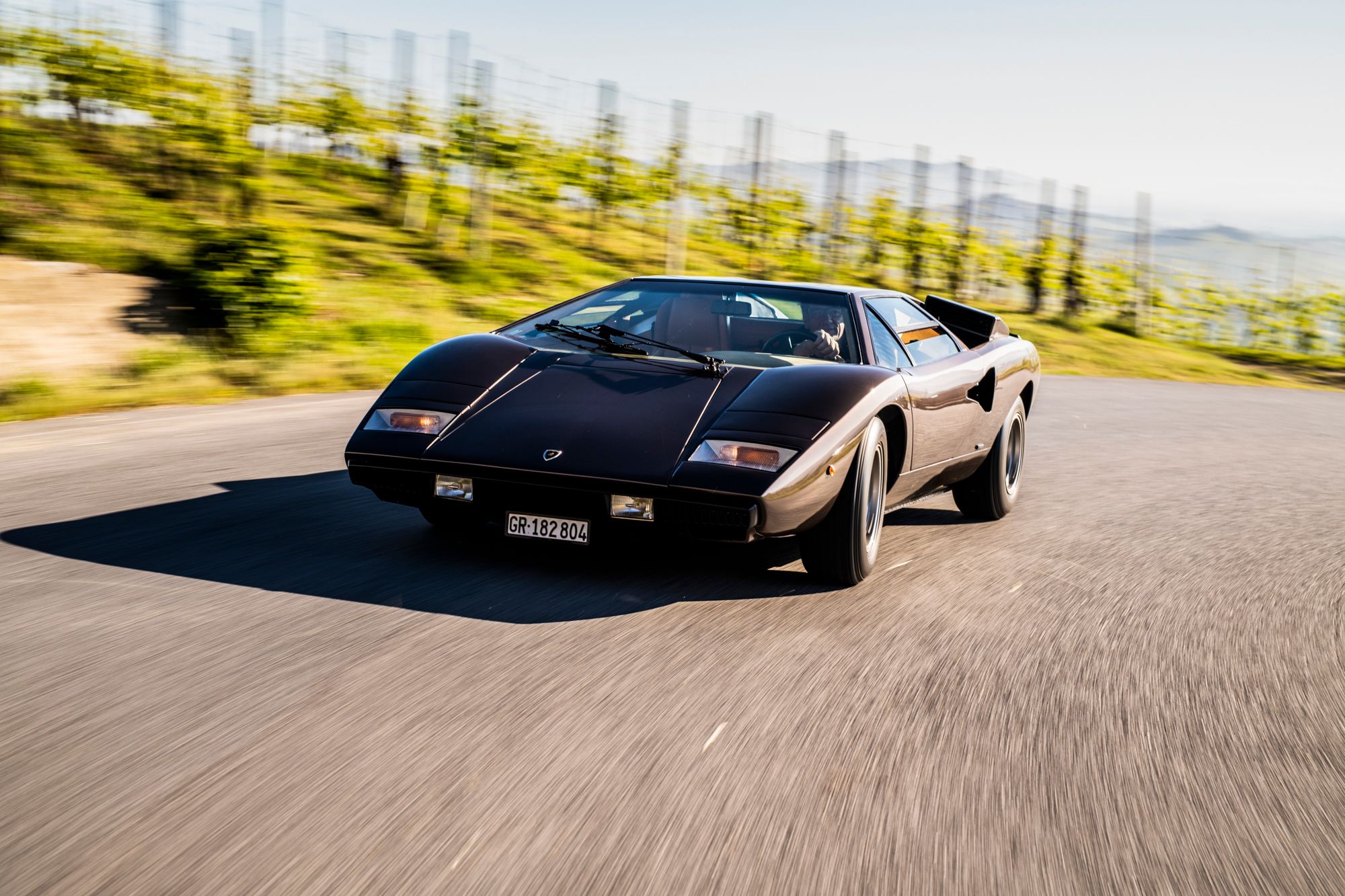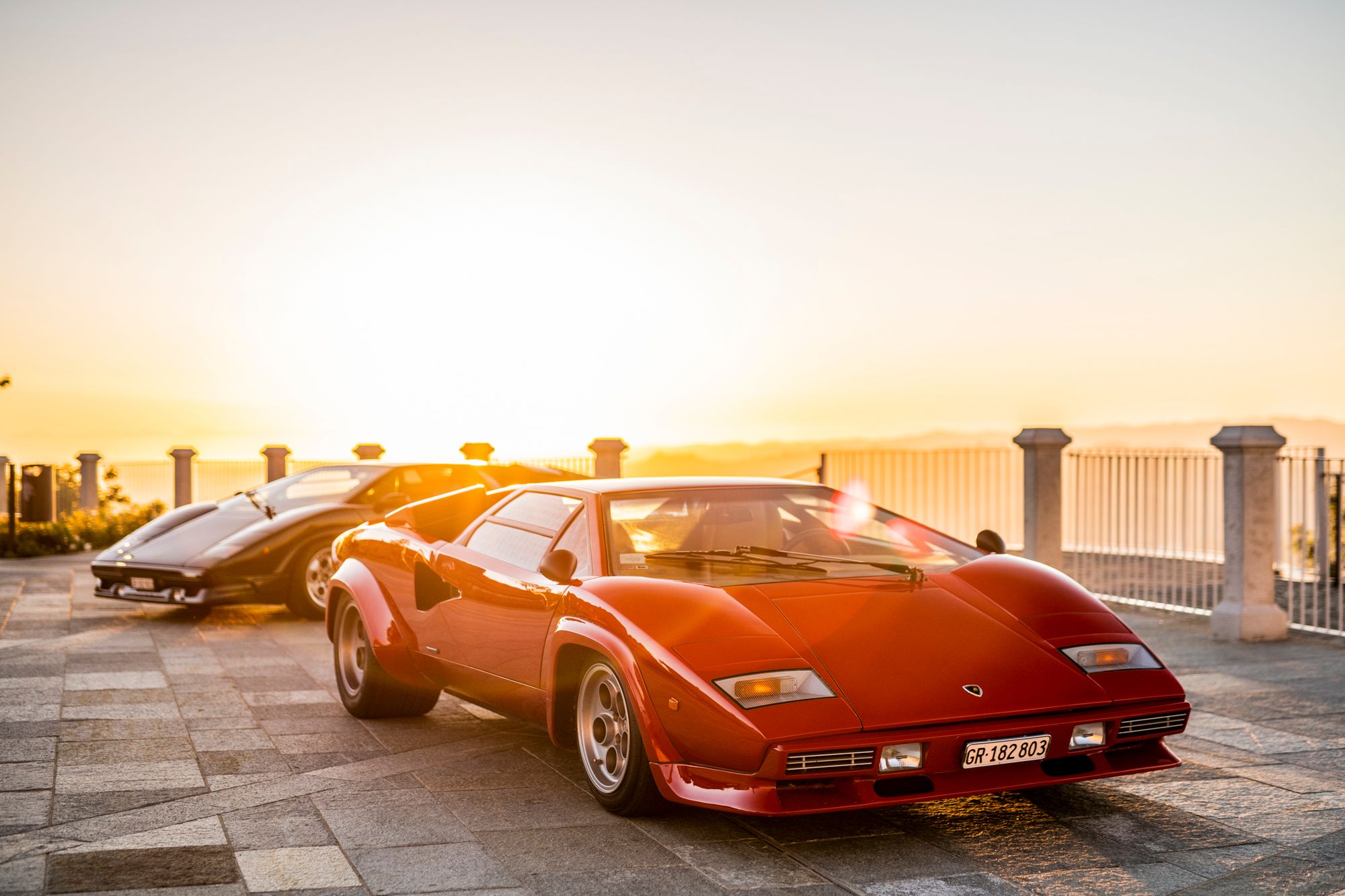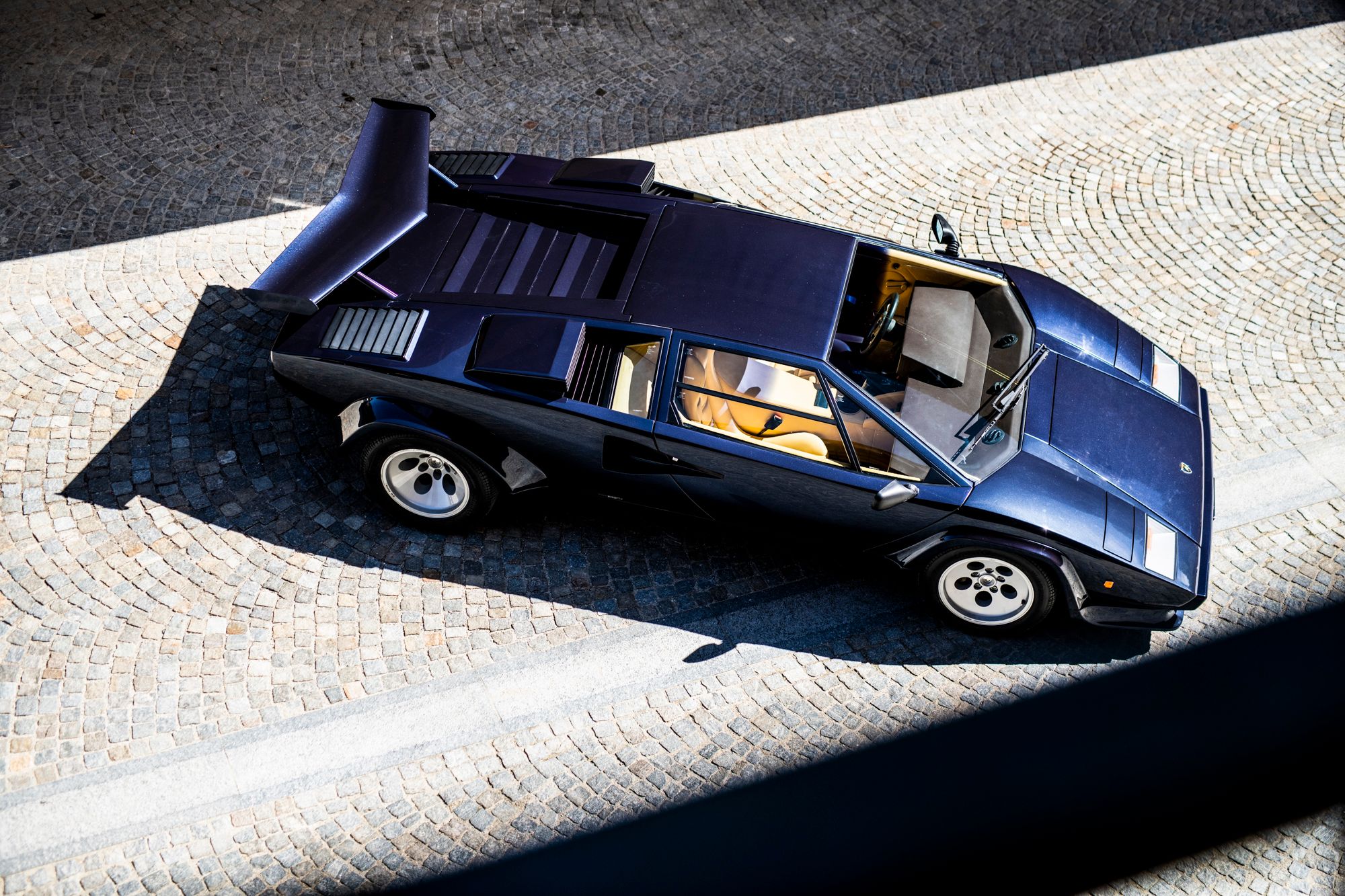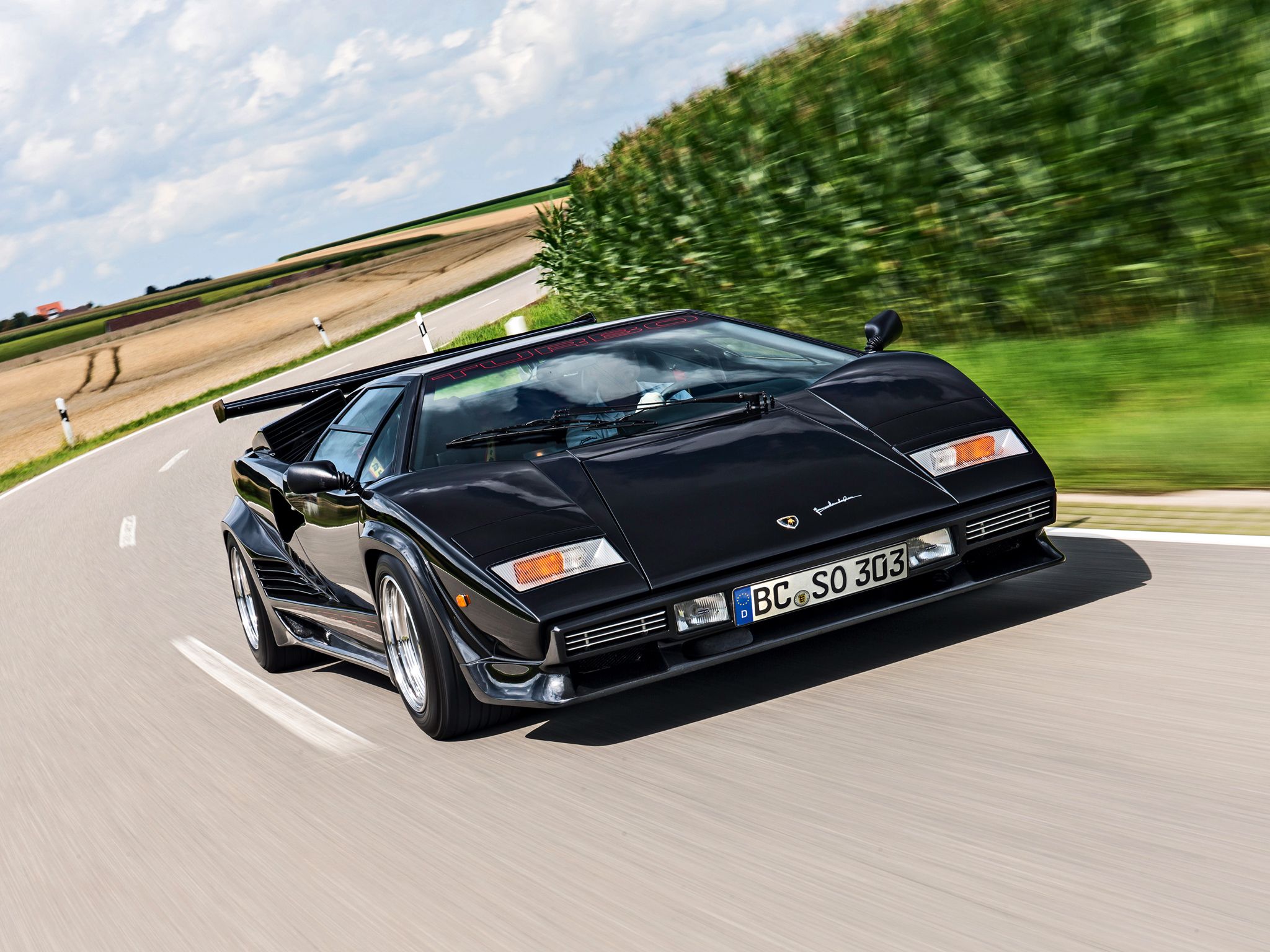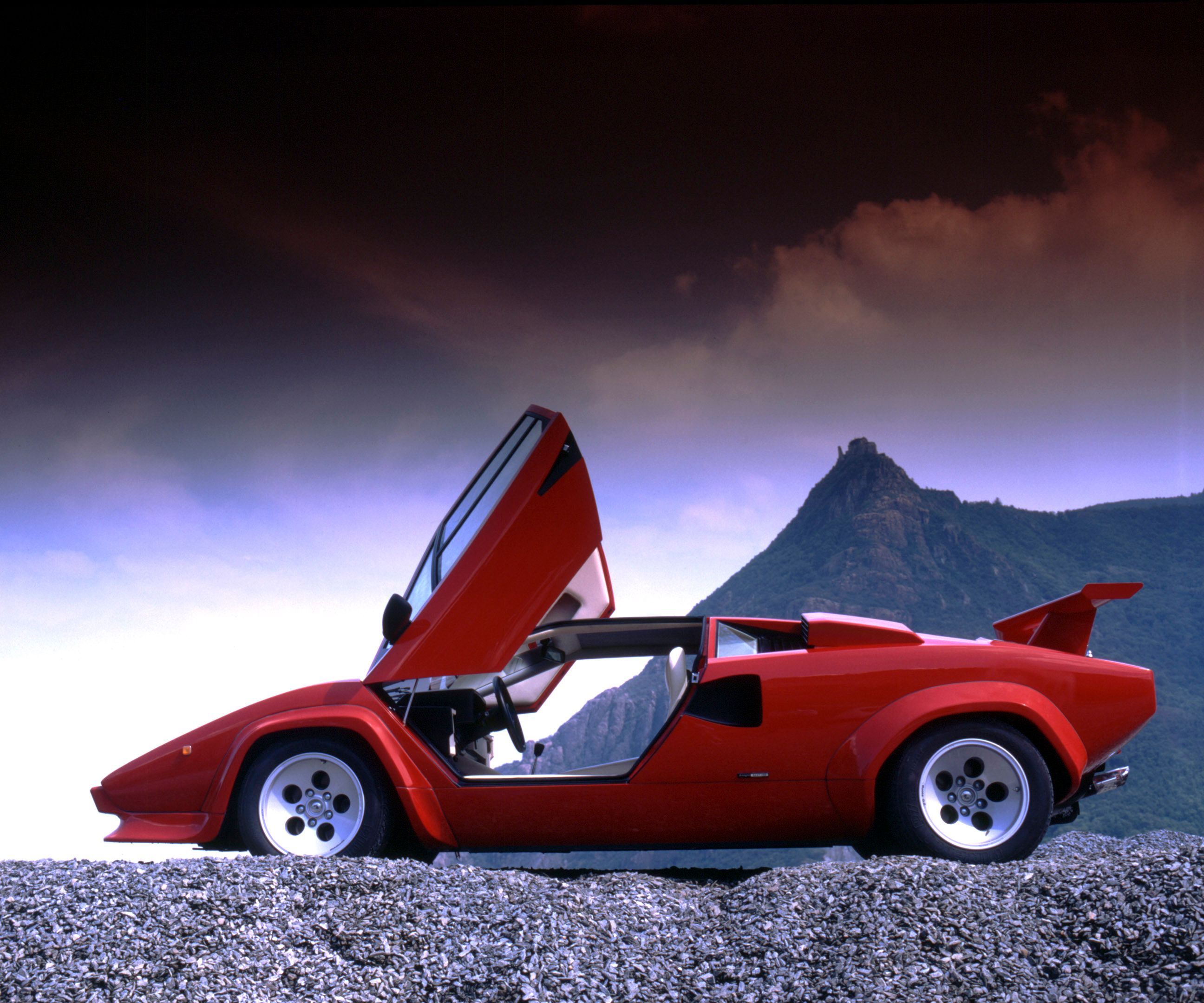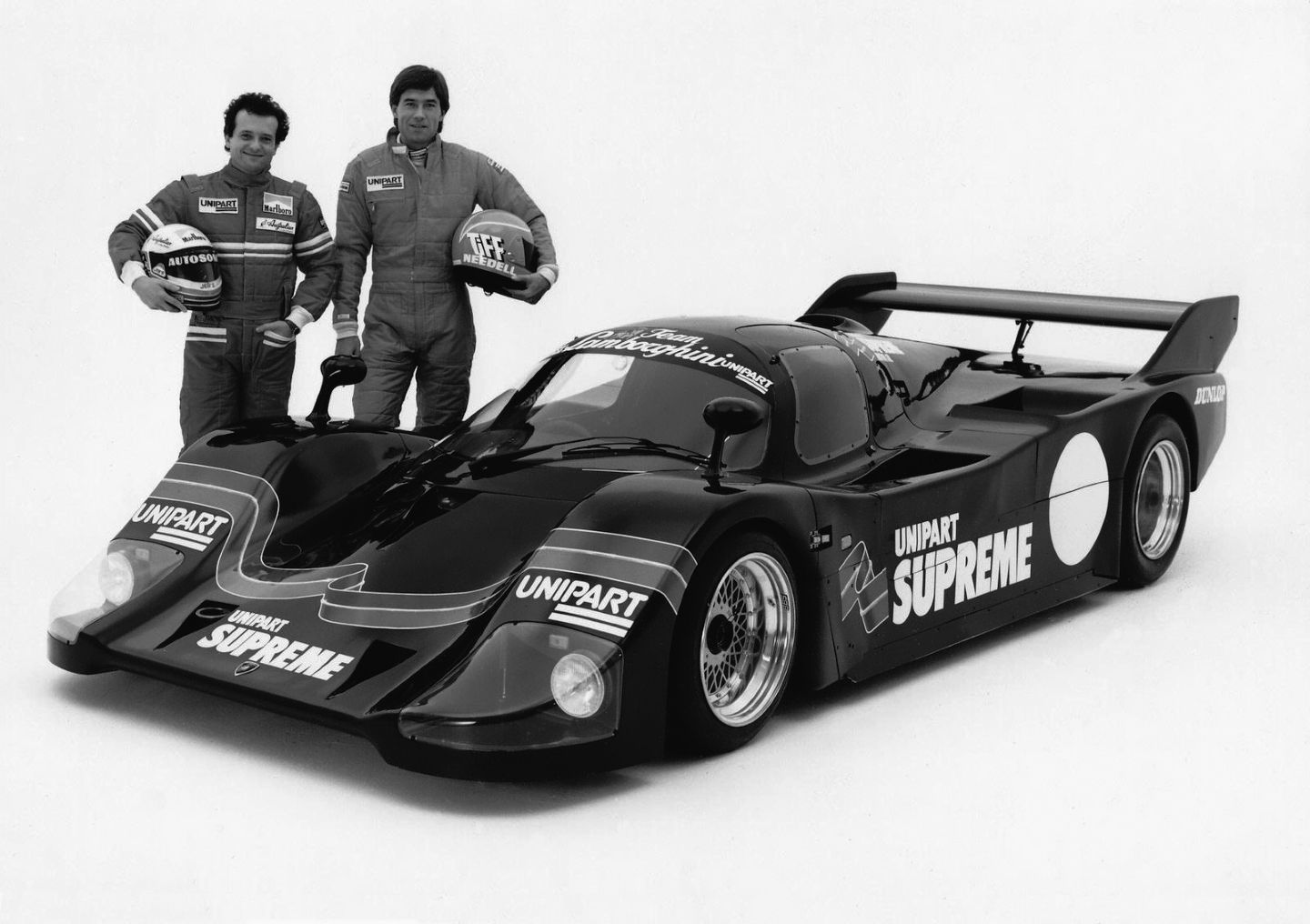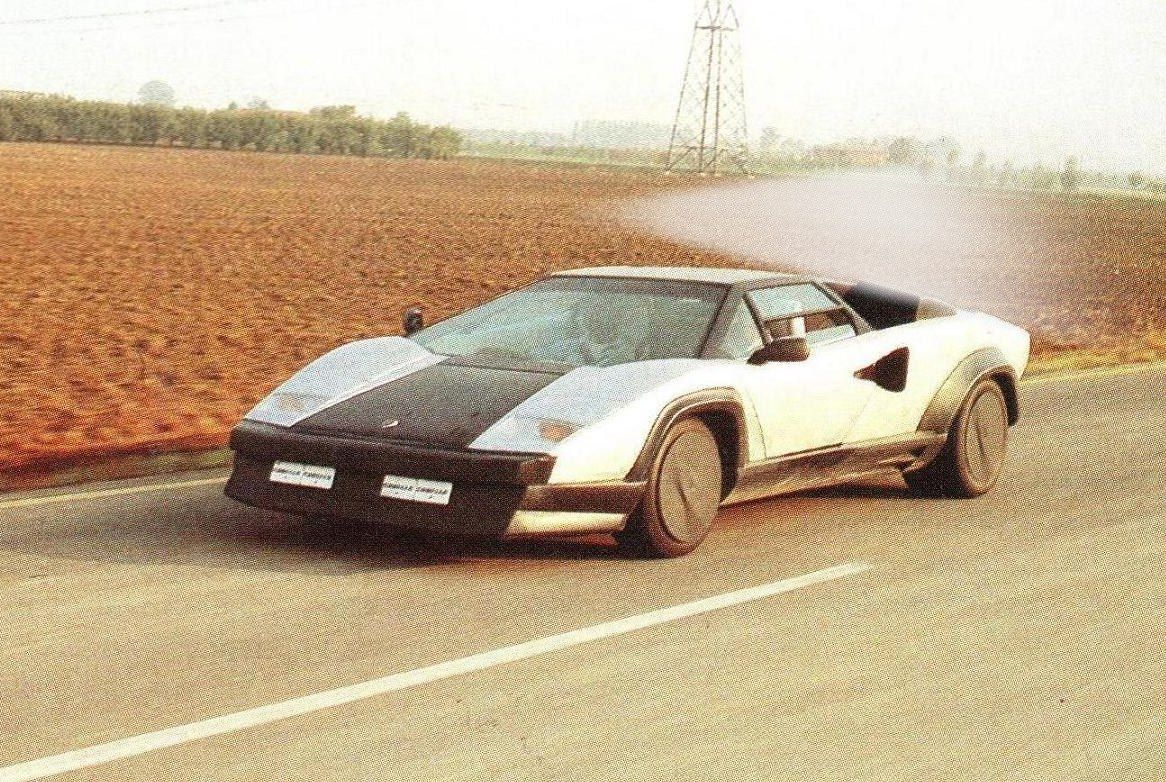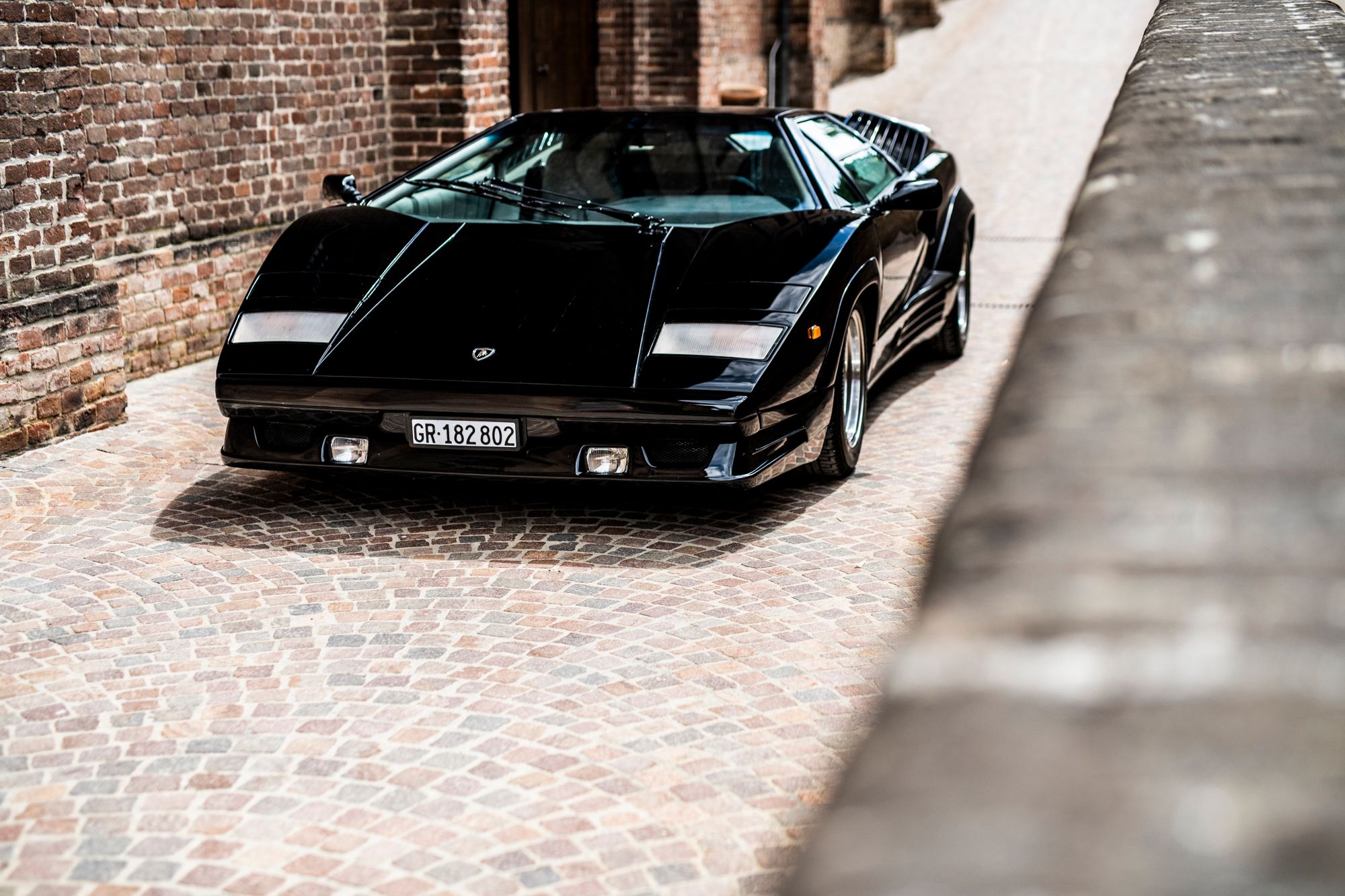We have said many times that Lamborghini Countach is a car that deserves to make a comeback. Lamborghini proudly celebrated the 50th anniversary of the Countach, by launching a series about the model‘s history. The original Countach was produced for 16 years, and now that the automaker is reviving the legendary model, it’s worth revisiting all versions of the original car, including some of the very obscure ones.
1971 Lamborghini Countach LP500 Prototype
This was the very first incarnation of the original Countach. It was followed by two more pre-production versions before the actual production car. The LP500 prototype was unveiled at the 1971 Geneva Motor Show and was built on a partial spaceframe steel chassis, as opposed to the production car’s full tubular spaceframe. The car was originally equipped with a new 5.0-liter V-12 engine, which produced 440 horsepower at 7,500 RPM 367 pound-feet (497 Nm) at 5,000 RPM. The engine was later destroyed during testing.
The destroyed powerplant was replaced by a version of the 3.9-liter V-12. The first prototype was eventually destroyed in a crash test at the MIRA facility in England, in order to comply with European safety regulations.
1973 Lamborghini Countach LP400 Prototype
The second prototype was unveiled at the 1973 Geneva Motor Show, painted in red. Later, it was painted green and shown at the 1973 Paris Motor Show. The car currently sits in the Lamborghini museum in Sant’Agata, Bolognese.
1974 Lamborghini Countach LP400 Pre-production
The third prototype is considered by many to be the first pre-production version. The car was built according to the LP400’s production specifications. The body was 5.1 inches (13 cm) longer than the previous prototypes, in order to create a more usable interior. The chassis and mounting points were beefed up, while the body panels were thicker than previous versions of the car. Due to reliability and packaging reasons, Lamborghini gave up on the 5.0-liter V-12.
1974 Lamborghini Countach LP400
The first and most sought-after production version was the LP400, with only 152 examples being built.
A five-speed manual sent power to the rear wheels, which resulted in a 0 to 60 mph (97 km/h) time of 5.6 seconds and a top speed of 196 mph (315 km/h). The original Countach was produced until 1977.
1975 Lamborghini Countach Walter Wolf Special
Apparently, if you are rich enough you can have a car named after you. Who knew? In 1975, a rich Canadian businessman was not satisfied with the performance of his Lamborghini Countach LP400. Gianpaolo Dallara – at the time Lamborghini’s chief engineer – was tasked with enhancing the car with chassis No. 1120148. He did so by putting a 5.0-liter V-12 engine, identical to the one in the original 1971 LP500 prototype.
1976 Lamborghini Countach LP400 Speciale
In 1976, three additional LP400 were built per special requests. One of the cars was for Walter Wolf – chassis No. 120202. The other two were commissioned by Ermanno Spazzapan –chassis No.1120188 – and Albert Silvera – chassis No.1120222. Each of the three cars received a special 5.0-liter unit like the one in the 1975 Lamborghini Countach Walter Wolf Special. All three cars were also heavily customized
1978 Lamborghini Countach LP400 S
The model’s first update came in 1978, in the form of the LP400 S. A redesigned exterior now featured a big rear wing (optional) and flared fenders. The latter was to accommodate the widest tires ever fitted to the Countach – 13.5 inches (345 mm) width. Because of the big, V-shaped, rear wing, the top speed was reduced to 171 mph (275 km/h), while the 0 to 60 mph time was around 5.9 seconds.
Three different versions were available – S1, S2, and S3. The latter was offered 1.2 inches (3.0 cm) more interior space. A total of 237 LP400 S were made. Power was still derived from the 3.9-liter V-12, but power went down to 359 horsepower and 270 pound-feet (366 Nm).
1982 Lamborghini LP500 S
With its second update, the Lamborghini Countach finally got the 5.0-liter V-12 engine. It was actually a 4.8-liter V-12 unit, which was not as high-revving as the 3.9-liter, but had a lot more torque. Power was back to 375 horsepower, while peak torque was 308 pound-feet (418 Nm).
This meant 0 to 60 mph (97 km/h) was now possible in around 5.2 seconds, while the top speed was 182 mph (293 km/h). The first 20 cars featured Campagnolo wheels, while the rest were equipped with wheels made by Ozetto in electron. The U.S. version of the car was called the LP5000 S because having more zeroes is always cooler, right? A total of 323 cars were made.
1984 Lamborghini Countach Turbo S
Officially, Lamborghini never offered a turbocharged version of the Countach. However, that didn’t stop Max Bobnar – a Swiss Lamborghini distributor – to commission two highly modified variants of the Countach. One was based on the LP500 S and was black, while the other was based on the LP400 S and was finished in red metallic paint.
The result was a 0 to 60 mph (97 km/h) time of 3.7 seconds and a top speed of 208 mph (335 km/h). The engine generated maximum power at 1.5 bars of pressure, but thanks to a manual boost controller located under the steering wheel, you could tune it down to 0.7 bar. But, why would you?
1985 Lamborghini Countach 5000QV
At this time, the Countach went through a significant update. The “QV” stood for “quattrovalvole”. This meant that the V-12 now had four valves per cylinder. In addition, the engine now had 5.2 liters of displacement and new downdraft carburetors. The car gained a lot of performance. It now produced 455 horsepower at 7,000 RPM and 369 pound-feet (500 Nm) at 5,200 RPM.
This was enough for a 0 to 60 mph (97 km/h) time of around 4.2 seconds. The Quattrovalvole had a top speed of 185 mph (298 km/h). The U.S.-spec 5000QV, however, had a Bosch K-Jetronic fuel injection, which was rather complex. Power was down to 420 and torque was 340 pound-feet (461 Nm). A total of 610 Quattrovalvole were built. Out of those, 66 were fuel-injected.
1985 Lamborghini Countach QVX
This was a project for Group C Racing, which utilized a bespoke chassis built by Spice Engineering and CC Engineering. It also used a 5.7-liter version of Lamborghini’s V-12, built by Luigi Marmiroli who used data from Lamborghini’s main engineers. Depending on the setup, the engine was said to produce anywhere between 650 and 700 horsepower. The gearbox was a VG-C racing transmission.
The car was actually commissioned by David Jolliffe and was entered in the 1985 LeMans season. The car was entered again in 1986, but after the funding ran out, it was retired. Despite not having much racing success, the Countach QVX managed to keep pace with seasoned manufacturers.
1986 Lamborghini Countach 7000 Prototype
Towards the end of 1986, a very different version of the Countach was introduced. It featured a heavily redesigned body with a deep chin spoiler and an integrated rear spoiler. The car also featured different side skirts, which were flush with the flared wheel arches, as well as new air intakes for better brake and engine cooling. The doors were slightly altered to allow for full-size side windows.
The prototype was based on a 5000QV, but the V-12 engine was bored to 7.1 liters. With two turbochargers bolted on, the massive V-12 produced 592 horsepower. The theoretical top speed was 240 mph (386 km/h).
1987 Lamborghini Countach “Restyling Prototype” L150
Development of the L150 started in 1984 after Giulio Alfieri decided he could optimize the Countach. The main goal was to address some design disadvantages of the production car, like the drag coefficient. To improve that new rocker panels were designed, which seamlessly joined the front and rear wheel wells. Some of the edges of the car were smoothened out and the air scoops behind the rear windows were redesigned. Some of the cooling ducts now resembled those of the 1971 prototype.
The NACA ducts were replaced with large side grilles and the side windows were redesigned. The front spoiler was also redesigned and was now flush with the rest of the front fascia. Despite extensive improvements, the engine and suspension were left untouched. The sole prototype was based on a European-spec 5000QV, which meant a carburetted 5.2-liter V-12 with 455 horsepower and 369 pound-feet (500 Nm).
1987 Lamborghini Countach Evoluzione
This version was heavily influenced by Horacio Pagani and the newly formed, back then, Composites department. The car was a testbed for future technologies that would make their way into the Countach successor. In fact, many design solutions will later transition into the Countach 25th Anniversary and the Diablo.
The car featured body panels made from Kevlar and carbon fiber, reinforced plastic, and aluminum honeycomb panels. In addition, the prototype was slightly lower than the production Countach. The chassis was completely new as well. The biggest change, however, was the chassis. The tubular steel frame was replaced by a composite unibody structure.
The result was a car 876 pounds (397 kg) lighter than the production version. At the same time, the prototype featured an all-wheel-drive, ABS, adaptive suspension, and a low-drag, retractable windshield wiper.
1988 Lamborghini Countach 25th Anniversario
To celebrate 25 years of Lamborghini cars, Lamborghini made the Countach 25th Anniversary. It was based on the 5000QV, which meant it used the exact same 5.2-liter V-12, with 455 horsepower and 369 pound-feet (500 Nm). The most distinctive feature of this version is the revised body, designed by Horacio Pagani, at the time working for Lamborghini.
The car had bigger spoilers and a lot more vents, compared to the 5000QV. In terms of craziness, the 25th Anniversary’s styling rivaled even something you would expect from high-end tuners like Strosek, Koenig, or Gemballa. The 25th Anniversary was the swan song of the Countach. It was succeeded by the Lamborghini Diablo, in 1990.

